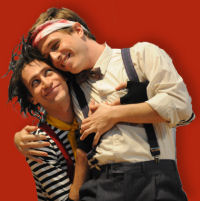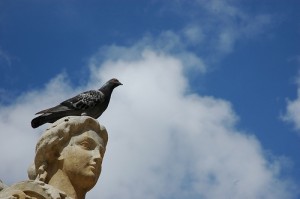Strange as the memory is for me now, the first words I ever got published were poetry. In the last few years, poetry has been a very sporadic pursuit. Yesterday, though, looking for an entirely different file, I happened on a poem I wrote nearly eight years ago, early in 2001, apparently after returning to the wellspring of Ferlinghetti, and that I’d since forgotten.
Watching a videocast from Washington last night, it seemed to me that half of what seemed impossible when I wrote this has come true: Across the ocean, where hope was written off like a bad debt, it has been reborn.
Here, in Jerusalem, one still has to dream of the very possibility of dreaming. The pseudonymous and very wise Jeremiah Haber chides for even considering the possibility. But I know of no biological difference that allows Americans to imagine a better future and prevents us from doing so. With some trepidation at daring poetry in a blog, I’m posting this.
Desiderata
I am hoping for the rebirth of hope
I am waiting for the beat of wheels on steel, the railroad drumbeat rhythm,
I am waiting for the long-distance heaven express.
I believe its time to lay tracks up to heaven
I am waiting for Jimi Hendrix to rise and climb on, for Phil Ochs to declare he’s retracted his resignation,
to rise all bones and anger banging a guitar and climb on,
I am waiting for the kids in the high schools to lay down their guns and climb on
I believe the generation born dead, raised dead, schooled dead in the malls’ mausoleum marble will pass
I believe with an imperfect faith, cracked but still serviceable, that a generation will be born that knows how to hope.
.jpg) Plastic tubs have rules,
Plastic tubs have rules, 







